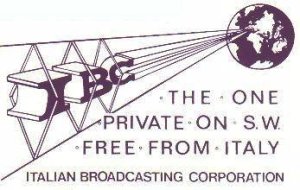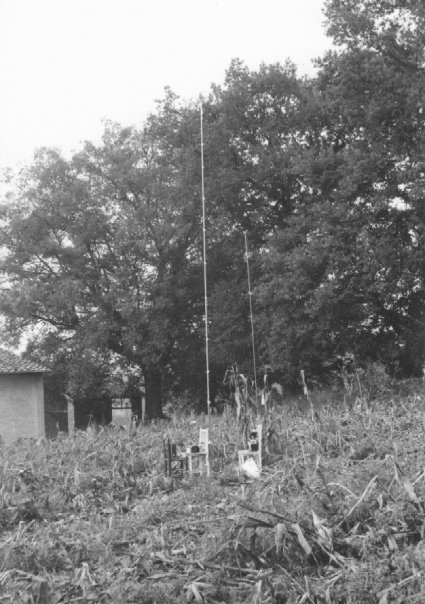THE HISTORY OF I.B.C. ITALIAN BROADCASTING CORPORATION
3 JULY 1979 – 6240 KHZ – 1,5 WATTS
For the 1st time in Italy a short wave pirate radio, broadcasts its signal in the ether: it is “COMPAGNIA ITALIANA DI RADIODIFFUSIONE”; this name was soon abandoned and replaced into the English one “ITALIAN BROADCASTING CORPORATION – IBC RADIO”..
More or less thirty-five years after that famous date, it is really very exciting to remember the ups and downs, the problems, the successes and the misfortunes of that game which became a successfull enterprise.
IBC began its transmissions with a surplus military transmitter with 10 W of power, but with an effective radiated power of 1 W. The transmitter was connected to a vertical telescopic aerial timidly sticking out of a small skylight in a city in Central Italy. Anyway, thanks to the help of some amateur technician friends a small 2 W transistorized transmitter was built which amplified to an amazing 10 W ! All this was hidden in a common shoe box; the “box” connected to an inverted-V dipole and installed somewhere in the country hills brought great luck to IBC on the famous 6275 kHz. At the end of the famous “first” time year, regular broadcasts began.
In this picture, on the left chair the tape player to broadcast the program, on the central chair the shoe box with the transmitter inside, on the right chair a Zenith Transoceanic radio used ad monitor. On the background the pole for the dipole.
However, the palimpsest was rather limited: a weekly transmission of 30 minutes, every Sunday and repeated 3 or 4 times during the day.
The arrangement for the broadcast was and remained always the same: normally it was recorded Friday night, in that famous attic in which there was a home-made studio. With the help of friends from all over Italy, who sent recordings, new programmes were invented, the musical palimpsest was chosen, “Play DX” was read. One of IBC’s characteristic was to always up-date its listeners about their favourite hobby, of course the radio listening; so that the help between the Milan bulletin and IBC was very close. A lot of readers certainly remember that IBC’s address was by that bulletin editing and every week during the DX programme the “Play DX” was read.
Still speaking about programmes, without doubt, every week end, one of the most listened to programmes was “Listeners’ mail”, run by ……, alias Saverio Masetti. All the letters were somehow included in the programme, to the great satisfaction of the listeners, but perhaps to the greater satisfaction of IBC which, in this way, informed everyone that its broadcasts were listened to in both Australia and in Finland, or whereverelse, and that “The History of Telecomminication” by Fabio Veronese was enjoyed by the listeners, and that the Dario Monferini’s speech was interesting, and so on.
As time passed there were many more helpers, more programmes and better transmissions techniques. During the best period, if we can say so, IBC transmitted, at the same time, on four frequencies every Saturday and Sunday. The 11585 kHz frequency became the “feather in the cup”: 200 W a real “Worldwide diffusion”. This is also the period in which the programme was exchanged with other stations; in this way IBC’s broadcasts could be listened to with a stronger signal from Australia on 41 meters band and from The Nederlands on 48 meters band; of course IBC trasmitted the foreign radio programmes.
In this manner IBC got the international address, a P.O.Box in The Nederlands, as all the most important North European pirate stations had during that period.
The programs became much more professional and they were not only for Italian people but also for an international audience with transmissions in English, French, German, Spanish, Greek and Farsi. A lot of new activities flourished as, for example, “hand made Listening Certificate” or “IBC newsletter”, the latter was then abandoned.
Everything seemed to go well, IBC was certainly listened to and appreciated.
Some obvious problems began: the costs were always more expansive for a radio began as a hobby, but which had become much more. If you think that more than 100 reception reports arrived every week, and each one had to be confirmed with a QSL card. The costs for the transmitters were always higher, as were those for recorder cassettes, the power, the certificates, the aerials……
It became difficult to manage: so that the broadcasts became more and more irregular, then they closed and occasionally they “opened” again, but only once or twice. And so they became a memory.
Extract from this Facebook page
https://www.facebook.com/pages/IBC-Italian-Broadcasting-Corporation/42794031466




